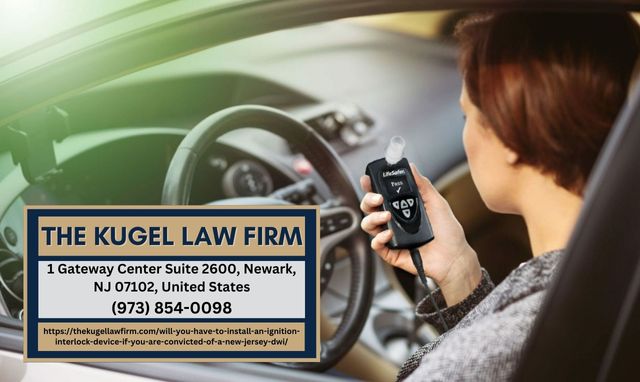Under the new DWI law that went into effect in December of 2019, an ignition interlock device is now mandated as a DWI penalty in pretty much every sentence, whether 1st, 2nd or third offense, the length of time that you need to have can vary, and whether one can drive once installed is also a variable which will depend on the person’s record, (whether this is a first, 2nd or third offense) as well as their blood alcohol content (whether it is below .15 or above .14, or involves drugs or whether there’s a refusal). So there are factors that can impact whether one can drive with it and for how long one will have to have it installed. There’s also a provision for those individuals who do not own a motor vehicle. Those people can have a prompt license suspension rather than an ignition interlock in most circumstances. So the law is definitely better than it was before 2019 from New Jersey drivers, but it’s still really complicated. It is important to understand your exposure which is based on so many factors that can impact it. For those reasons, you should definitely speak to a New Jersey DWI lawyer as soon as possible.
Ignition Interlock Devices in New Jersey

An ignition interlock device is mounted on the dashboard in front of the passenger seat. It is connected to the car’s ignition system and designed to prevent the vehicle from starting if alcohol is detected on the driver’s breath. Before starting the engine, the driver must blow into the device and provide a breath sample. While the engine is running, the device will intermittently prompt the driver to submit additional breath samples to verify that there is no alcohol in the driver’s system.
Every motor vehicle owned, operated, or leased by a DUI offender in New Jersey must have an ignition interlock device installed until the court-ordered license suspension period expires. Upon being sentenced to install an ignition interlock device, the offender receives a suspension notice from the Motor Vehicle Commission containing instructions for obtaining the device.
The ignition interlock device must remain functional in the offender’s vehicle during and after the license suspension period, which is a minimum of six months to one year for a first DWI conviction and a minimum of one to three years for subsequent convictions. If the convicted person wishes to remove the device from their vehicle, they must surrender their driver’s license.
Operating any vehicle that does not have an ignition interlock device before the indicated period is over is prohibited under New Jersey’s DWI law. Failure to comply with the rules may result in the offender’s driver’s license being suspended for one year and other penalties as applicable by law.
At The Kugel Law Firm, our skilled New Jersey DWI attorneys, led by top-rated DWI attorney Rachel Kugel, can assist you if you have been ordered to install an IID device as part of your conviction. Our attorneys have the experience and knowledge needed to walk you through your rights and responsibilities and advocate for your best interests. To learn more about how we can help, contact us today at (973) 854-0098 to schedule a consultation.
from Kugel Law Firm – DWI/DUI Defense in New York & New Jersey https://thekugellawfirm.com/will-you-have-to-install-an-ignition-interlock-device-if-you-are-convicted-of-a-new-jersey-dwi/

